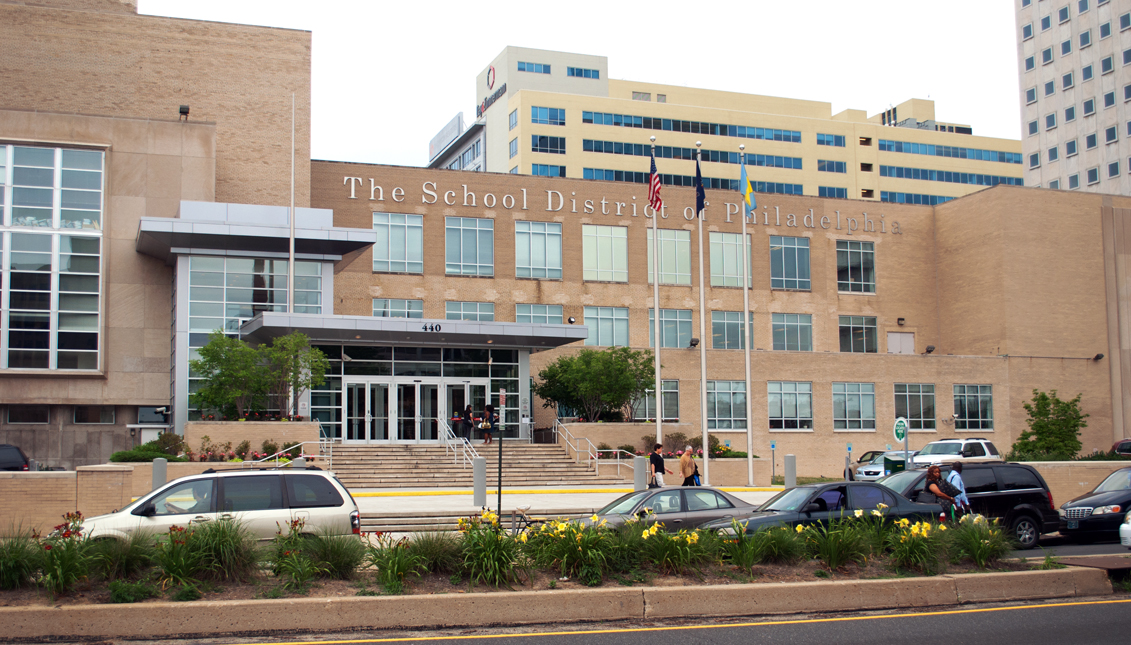
Dr. Evelyn Nuñez breaks down the Philly School District’s reopening plan
Ahead of reopening, the district has planned for best-case scenarios, and worst case scenarios, but Dr. Nuñez is optimistic for the future.
Back in May of 2020, Dr. Evelyn Nuñez broke down the switch to virtual learning for students and parents. Nearly a year later, she’s back to walk parents and students in the School District of Philadelphia through the plan for transitioning to in-house learning, 10 months into dealing with COVID-19.
Nuñez, the Chief of Schools, entered the position at quite possibly the most critical time the school district has ever faced — an unprecedented pandemic and no blueprint for how to navigate the pandemic. But now she says the district has implemented an extensive set of precautions and health measures to ensure social distancing for everyone in the building.
But most importantly, while keeping the most affected populations — Philadelphia’s Black and Latino populations— in mind during the implementation process.
“While we recognize that safety is crucial— a top priority— we also understand that our most vulnerable children, our Black and Brown children, are suffering greatly from not being in schools,” Nuñez told AL DÍA.
There’s an urgency to reopening schools, not only so that children have the ability to learn in person, but because for some students, the only predictable safe spaces for them are schools.
“Many of the children that we serve here in Philadelphia eat regular meals on a more steady basis when they’re in schools,” Nuñez said. “So we’re thinking about our most vulnerable children in making these decisions.”
This is why the school district has decided to begin the process with the youngest age group.
Prek-2 students whose families selected hybrid learning during the initial selection process in the fall of 2020 will be the first to begin the slow return. Nuñez further explained why.
“Health experts have stressed that they have the lowest risk when it comes to this virus,” she said. “Most schools, they’re looking at only 30-40 students coming back to school.”
A dramatically cut-down population of students.
“If we follow safety protocols, it is safe for us to return to in-person learning,” Nuñez stressed.
School staff is scheduled to return to in-person teaching within the hybrid model on Feb. 8, followed by students, who will be welcomed on Feb. 22., according to a letter from Superintendent William R. Hite.
Schools will implement several health requirements, including a pre-screening for students and staff, mandatory PPE equipment, new classroom and bathroom procedures for social distancing, plexiglass installations, touchless hand sanitizing stations, touchless hydration stations, new maximum occupancy signs, and “enhanced” cleaning measures according to EPA guidelines.
Additional information can be found here.
“Once everything is going smoothly, we’re going to reopen registration again so that additional families that didn’t select hybrid models in the Fall,” Nuñez said.
But it took a lot to get to a point where there was hope beyond a hybrid model— nearly a year.
“We looked at data. We looked at attendance in the virtual setting. We looked at academic outcomes. We continue to assess students, and not only recent data since we’ve been in the pandemic, but what we already know about education, and the students that need the most resources, even before covid,” she explained.
RELATED CONTENT
All across the board, the data showed that the populations most in need were Black and Brown children. For these demographics in particular, Nuñez explained that resources and the sense of community that schools provide the vacancies that are felt the most.
“The school is the hub of the community, you know. Parents need us. They need us to communicate with them [...] during this time, we know that we will be by far much more successful in person.”
But even with the conditions that have brought a transition to a hybrid model possible, Nuñez said that the district is still prepared for an outbreak to occur at any time, having developed procedures to act should it be the worst-case scenario.
Should the first phase be successful, Dr. Nuñez is looking at expanding the hybrid model to other student cohorts that need the in-person environment.
Special education students are in dire need of in-person learning, she explained. So are high school students in CTE programs who need hands-on skills in order to earn the credits to apply to their desired trade.
Nuñez is thinking as far ahead as Summer.
“We’re offering summer school for kindergarten through fourth grade, for all students in person, hopefully. We’re hopeful that by then everyone, all the staff and students have been vaccinated, and that we can start welcoming children full time in person during the summer to get ready for the next school year.”
As She told AL DÍA in a previous interview, while Nuñez is cautiously optimistic, she is most looking forward to being in a learning environment where there are children. Since she first assumed her role, that experience was quickly taken away because of the pandemic.
“I wholeheartedly believe that we are ready. When I’m in the community, in the supermarket, and running into children and even staff, everybody’s really missing [...] school is a big part of people’s lives.
She referenced other school systems in the region successfully reopening with similar models— from private schools to Catholic schools all over the state, saying, “Our children deserve that as well. Our families deserve that, our communities deserve that.











LEAVE A COMMENT: